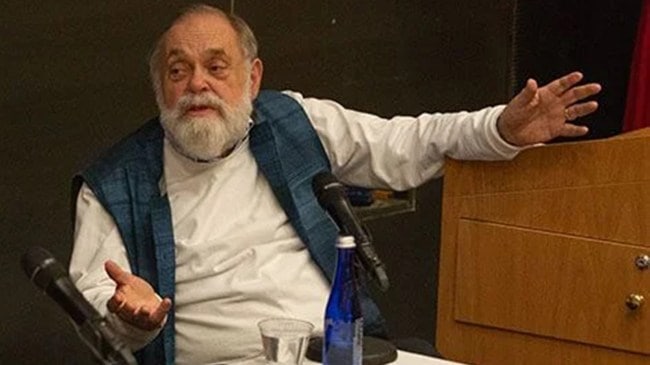Opinion Richard Cash, the man whose invention saved over 80 million lives
In 1978, ‘The Lancet’ called Oral Rehydration Therapy the most significant medical advance of the 20th century and, in 1987, UNICEF stated, ‘No other single medical breakthrough of the 20th century has had the potential to prevent so many deaths in such a short time and at such low cost’
 Richard Cash. (Image: harvard.edu)
Richard Cash. (Image: harvard.edu) Richard Cash, physician and global health scholar, died on October 22 at the age of 83 in his home in Cambridge, US. Although American by citizenship, Richard’s heart belonged in South Asia, particularly in Bangladesh and India, where he lived for extended periods and where his work contributed to saving tens of millions of lives. With his long-time collaborator, David Nalin, Richard conducted the first clinical trials of Oral Rehydration Therapy (ORT) in cholera patients in Bangladesh in the late 1960s, demonstrating that this low-cost intervention could effectively and safely reduce intravenous fluid needs. In the early 1970s, during a severe cholera epidemic among refugees from the Bangladesh Liberation War, Dilip Mahalanabis, an Indian paediatrician, demonstrated that ORT could reduce mortality from diarrhoea by up to 90 per cent in these vulnerable settings.
The most important feature of this discovery was its simplicity: Boiled water, sugar and salt, a mixture which could be cooked up in any kitchen and was virtually free. According to one estimate, ORT saved more than 80 million lives, particularly children, since its inception. No wonder that, in 1978, The Lancet called ORT the most significant medical advance of the 20th century and, in 1987, UNICEF stated, “No other single medical breakthrough of the 20th century has had the potential to prevent so many deaths in such a short time and at such low cost.” Indeed, many would argue that ORT is the most cost-effective health intervention in history. At a time when the world is seemingly entranced by commercially driven high-tech medicine, ORT is an exemplar of the idea of a frugal innovation, one which empowers ordinary people to take control of their well-being. Ironically, as Richard said “it really is much harder to make something simple than to make it complicated.” In 2006, the Royal Thai Government presented Richard and his colleagues with a joint Prince Mahidol Award, in recognition for their role in this transformative discovery.
Over the course of his work in South Asia, Richard developed a special affinity for the region, its cultures and peoples. He was passionately committed to the organisations he considered were at the vanguard of health equity, notably BRAC, the Public Health Foundation of India and the Sree Chitra Tirunal Institute in Kerala. His home in Cambridge was open to everyone, to the extent that it was referred to as the Cash Inn. He had an eye for beautiful things. Richard amassed a collection of South Asian art and had a special affection for Hindustani Classical and Sufi music. The many memorials which have been held and obituaries written in his honour across South Asia are a testimony to how much he loved, and was loved, in the region. His love affair with India, ultimately, led him to his wife. Richard seemed the eternal bachelor until the youthful milestone of 57 when, in a manner fitting a Bollywood script, he met Stella Dupuis on Kovalam beach in Kerala. They were married in 2009. Stella has her own long tryst with Indian culture, having researched and written extensively on Hindu deities and iconography, in particular the yogini sect. She was the love of his life and was his devoted caregiver in the months leading up to his passing.
Richard spoke truth to power and was utterly fearless of being viewed as a contrarian, calling out policies which he thought were plain wrong. As just one example, he wrote and spoke passionately against the imposition of lockdowns during the early years of the pandemic, especially in countries like India where the majority of people lived precariously and, as was often the case, he was right. He taught a variety of subjects related to global health at Harvard University for nearly 50 years. He enjoyed teaching immensely, and was much loved by his legions of students whom he would exhort to get out of the classroom and get their hands dirty by being embedded in communities.
Richard Cash will be remembered for being a generous mentor, an incisive scholar, an adoring husband, a loyal friend and, above all, a remarkable human being. He will also be fondly remembered for his love for food and for being a terrific raconteur. A man with a clear moral compass who lived life to the fullest. He leaves behind a global community of friends and admirers who will cherish these memories and celebrate his monumental legacy.
The writer is the Paul Farmer Professor of Global Health at Harvard Medical School




